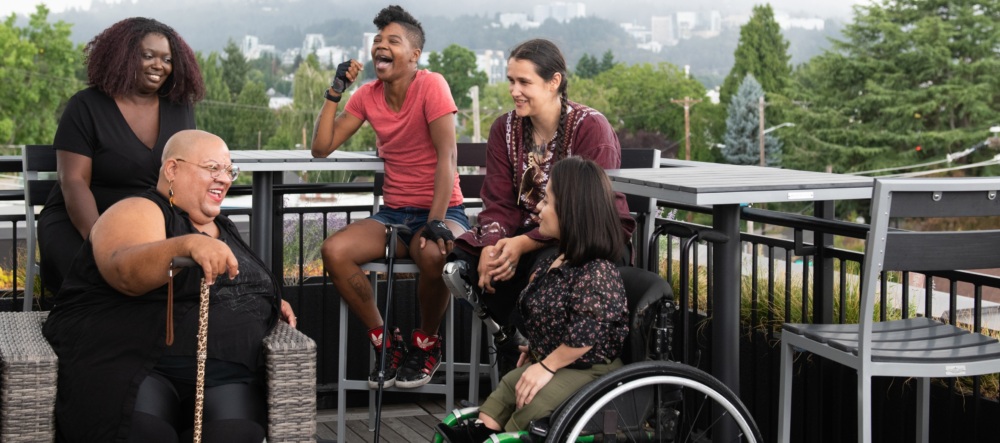
Press Release
New Analysis Shows 80% of Health Professionals Receive Questions About Environmental Impacts on Childhood Cancer Survivorship Rates. Only 25% Feel Comfortable Responding
For Media Inquires Contact:
Email: media@phi.org
-
Focus Areas
Environmental Health, Health Care & Population Health, Women, Youth & Children -
Issues
Cancer -
Expertise
Research – Survey -
Programs
Pediatric Environmental Health Specialty Units National Program Office

OAKLAND, CA — Experts with the Pediatric Environmental Health Specialty Units (PEHSU) Childhood Cancer and the Environment Program have published a new analysis that shows that 80% of oncology team members from a major pediatric cancer hospital in the United States receive questions about environmental impacts on childhood cancer and survivorship rates; only 25% feel comfortable responding to these questions. Those questioned consisted of physicians, advanced practice providers, social workers, and nurses.
The April 2024 study from Texas Children’s Hospital Cancer and Hematology Center also included a one-hour focus group involving 19 families from the Cancer and Hematology Center Family Advisory Team. Families expressed frustration at the lack of expertise from health professionals on environmental risks, leading to increased anxiety and reliance on misinformation stemming from their own internet research. The discussion revealed a strong need for the development of a pediatric cancer environmental referral service.
Integrating environmental health into pediatric cancer care can empower patients and families, promote healthier behaviors, and potentially reduce morbidity and mortality in this vulnerable population.Shakeel, O.; Wood, N.M.; Thompson, H.M.; Scheurer, M.E.; Miller, M.D.
Exposure to environmental hazards such as air pollution, tobacco smoke, extreme weather events, and pesticides can negatively affect the health and survival of childhood cancer survivors. Example studies cited include data from Utah shows that children who live in areas with air quality standards for fine particulate matter at or above PM2.5 or higher were associated with a worse overall survival rate among children with some types of cancer; data from Texas shows childhood cancer patients who lived closer to an oil or gas well at the time of diagnosis were associated with worse overall survival rates; data from California shows that when the father of a child with acute myeloid leukemia smoked during the pre-conception period it reduced childhood cancer survivor rates at 5 years.
About PEHSU: The Pediatric Environmental Health Specialty Units (PEHSU) National Program Office (NPO) is implemented by the Public Health Institute (PHI), with advisory support from the Association of Occupational and Environmental Clinics (AOEC) through a three-year cooperative agreement with the U.S. Centers for Disease Control and Prevention (CDC) Agency for Toxic Substances and Disease Registry (ATSDR) and support from the U.S. Environmental Protection Agency (EPA). The PEHSU NPO supports a network of ten regional PEHSUs across the nation, whose vision is to create healthy environments for all children. The PHI-AOEC team facilitates and amplifies the capacity of the PEHSU network to prevent and mitigate hazardous environmental exposures during fetal development, childhood, adolescent development and the preconception period. For more information about PEHSU, visit www.pehsu.net.
About PEHSU’s Childhood Cancer & the Environment Program: The Childhood Cancer & the Environment Program is a national program of the Pediatric Environmental Health Specialty Units (PEHSU) Network to educate pediatric health care providers, parents, and caregivers about environmental influences on childhood cancers, such as leukemia. Since 2022, the program has educated clinicians and families on practical ways to both prevent childhood cancer as well as to improve treatment outcomes and survivorship. Program Lead, Mark Miller, MD, MPH, is a pediatrician and Associate Clinical Professor at UCSF. Learn more about the Childhood Cancer and the Environment Program.
For media-related inquiries, contact Whitney Sterten-Hall at pehsunpo@phi.org.
More Updates
Work With Us
You change the world. We do the rest. Explore fiscal sponsorship at PHI.
Support Us
Together, we can accelerate our response to public health’s most critical issues.
Find Employment
Begin your career at the Public Health Institute.


